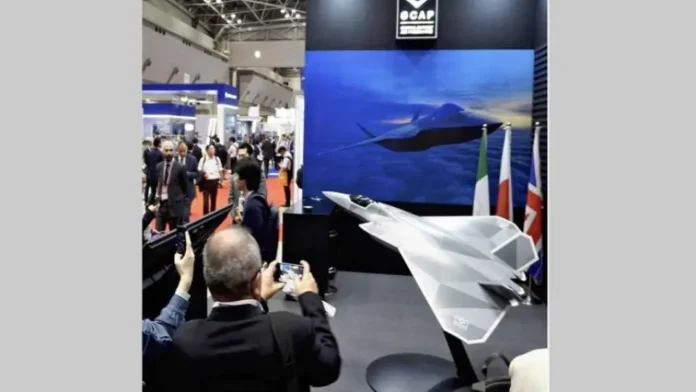TOKYO – Japan, the United Kingdom, and Italy are considering including Saudi Arabia in the development of a next-generation fighter jet under the Global Combat Air Program (GCAP).
The three countries are expected to reach a formal agreement by the end of this year, allowing Saudi Arabia to join the high-profile project, which is set to deploy advanced fighter jets by 2035.
Saudi Arabia, a country known for its wealth due to oil exports, is seen as a potential key partner for the GCAP, with its financial resources likely to provide significant backing to the ambitious project.
The inclusion of Saudi Arabia could bring substantial funding to the program, which aims to create a new generation of fighter aircraft designed to replace older models in the air forces of Japan, the U.K., and Italy.
The three nations have already signed a treaty to establish the GCAP International Government Organization (GIGO), which will oversee the development of the next-generation fighter jet.
However, according to a source within the Japanese government, Saudi Arabia’s inclusion could be outside the formal framework of the treaty, possibly as a partner in the broader program without being a full member of the governing body.
The talks surrounding Saudi Arabia’s involvement gained momentum after a trilateral summit held by the three countries on November 19 in Brazil. At the summit, U.K. leaders emphasized their commitment to expanding the program and involving a broader array of international partners.
This move aligns with ongoing efforts by the U.K. and its allies to enhance military and defense collaboration on a global scale, particularly in the area of advanced aviation technologies.
The GCAP aims to produce a fleet of fighter jets that are more advanced and capable than the current models in service, including stealth technology, artificial intelligence integration, and enhanced cyber capabilities. The new fighter aircraft are expected to be deployed by 2035, with the development process already underway.
The inclusion of Saudi Arabia in the program would mark a significant step toward strengthening the kingdom’s defense industry.
Saudi Arabia has previously shown interest in developing its own military technologies and expanding its defense capabilities.
The nation has also sought closer ties with Japan and the U.K. in terms of defense cooperation, particularly as tensions in the Middle East and global security concerns continue to grow.
With the financial might of Saudi Arabia, the GCAP could see accelerated development, making it a key player in the future of military aviation.
However, the potential addition of Saudi Arabia also raises questions about the geopolitical implications of such a partnership, especially in terms of the region’s security dynamics.
In the coming weeks, Japan, the U.K., and Italy are expected to finalize discussions and formalize Saudi Arabia’s potential role in the development of the next-generation fighter jets.
Should the agreement proceed as planned, it could signal a new era of global defense collaboration, with Saudi Arabia playing a pivotal role in the future of air combat technology.

